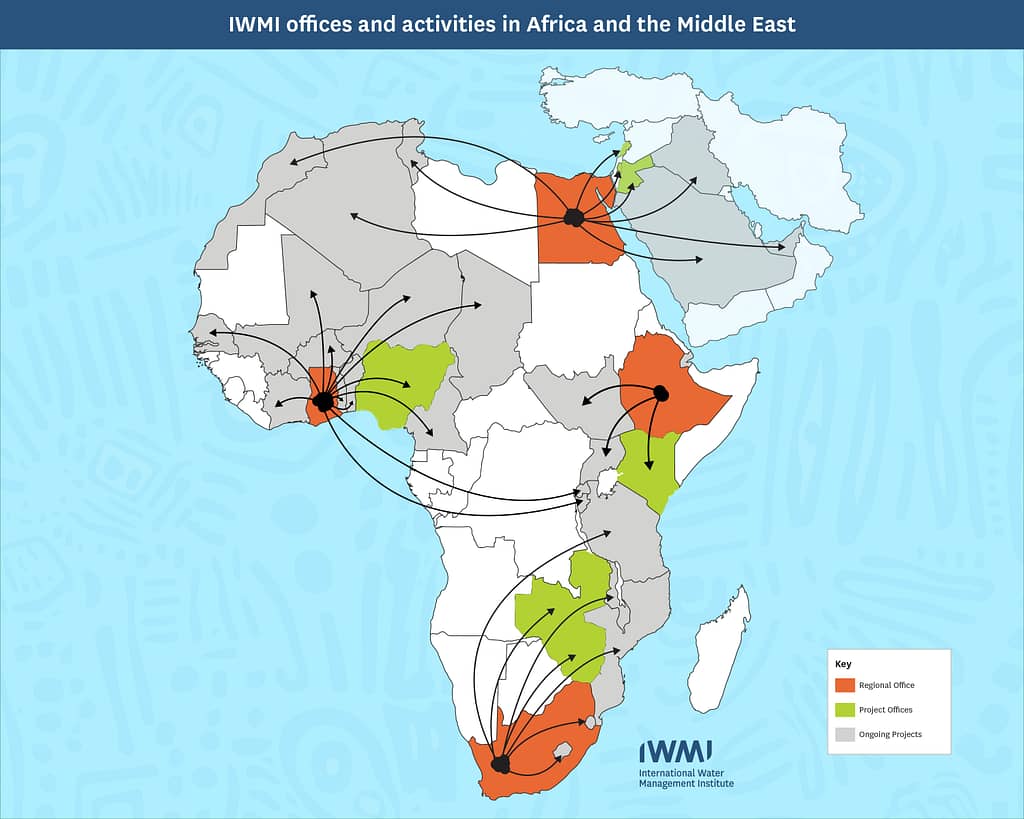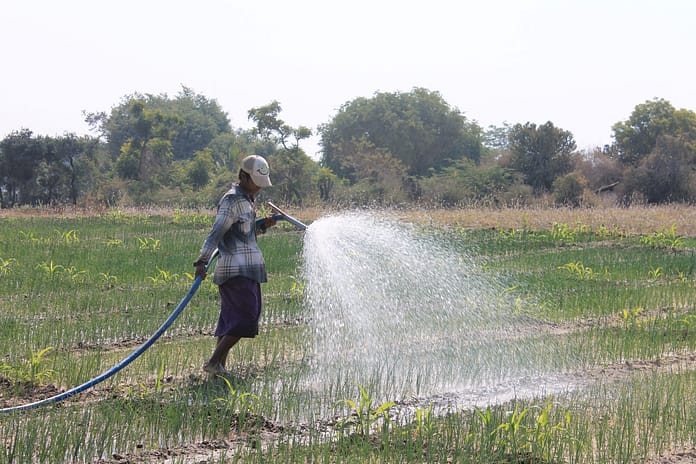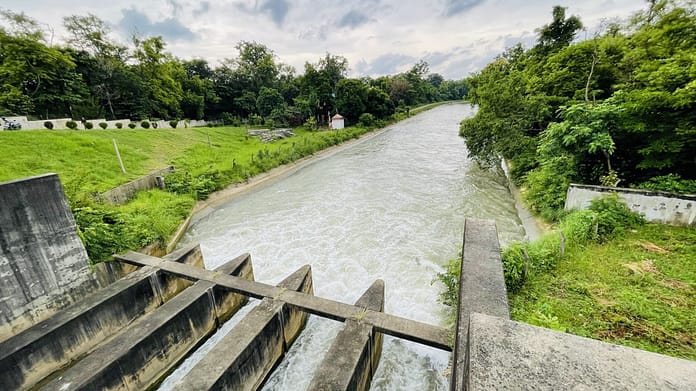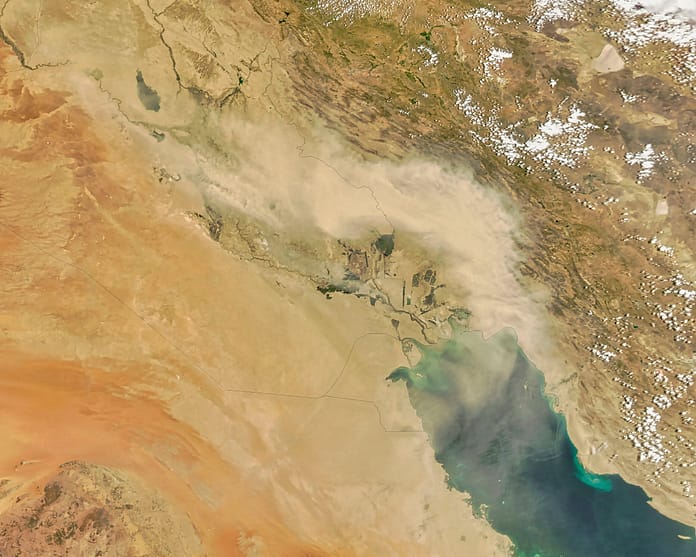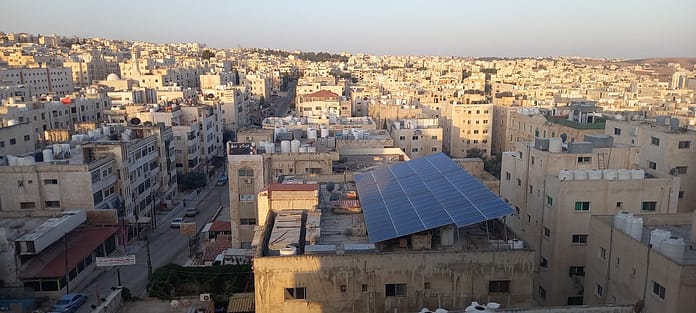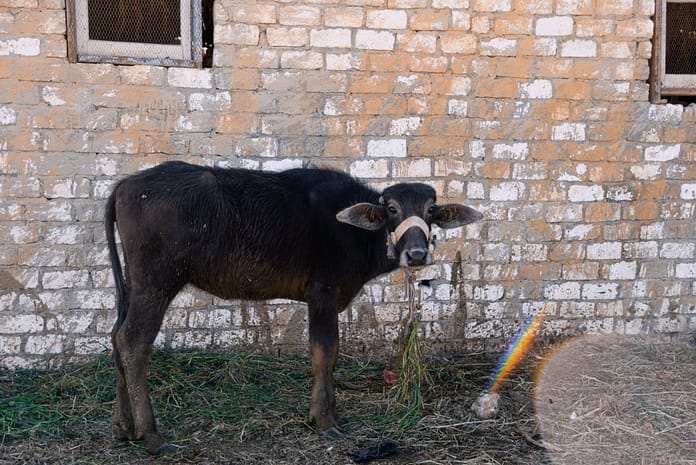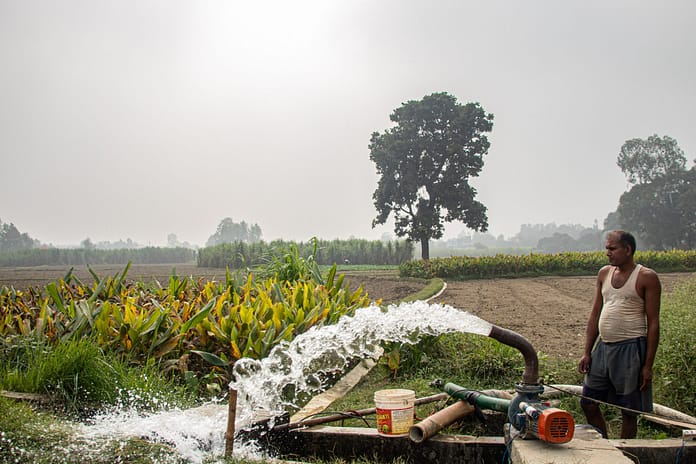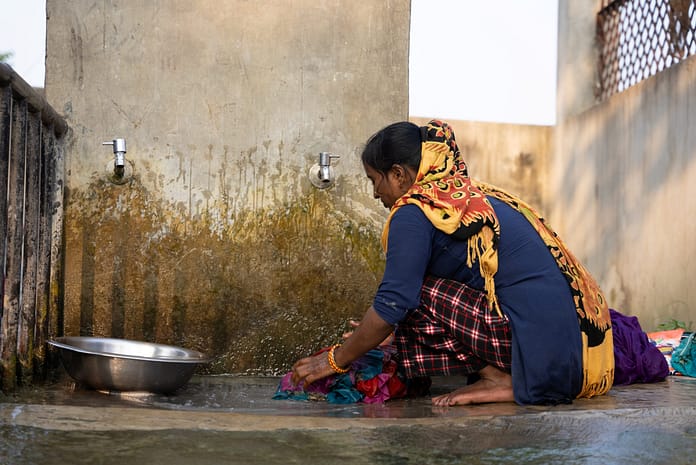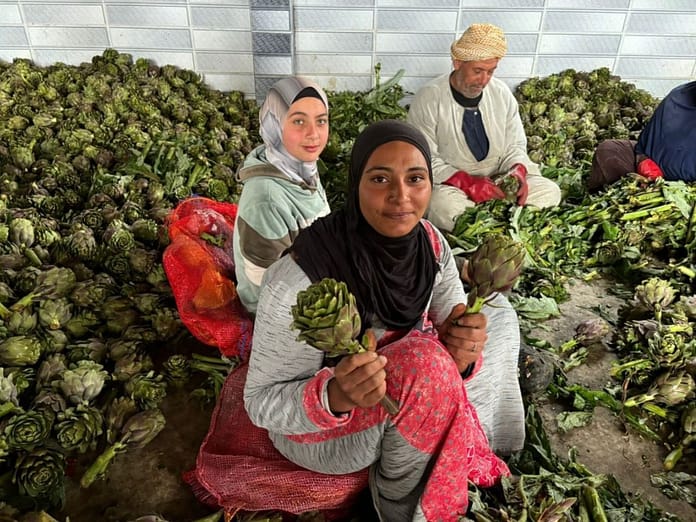
Water has always been central to Africa’s heritage, sustaining lives, livelihoods and civilizations. Today, it remains the foundation for agriculture, energy, health and economic development. As we celebrate Africa Day 2025 under the theme “Revisiting Our History, Shaping Our Future,” the International Water Management Institute (IWMI) reflects on its journey of transforming water systems to secure Africa’s future in line with the African Union’s Agenda 2063: The Africa We Want.
Agenda 2063 aims to position Africa as a global economic power, and water is critical to achieving this vision. With 86% of Africa’s water used for agriculture, the continent’s largest employer, addressing water challenges is essential. At the 9th Africa Water Week (AWW9), held in October 2024 in Cairo, Egypt, stakeholders emphasized the importance of sustainable water management as a foundation for developing the post-2025 Africa Water Vision, which will guide the continent’s water-related priorities beyond 2025.
As a knowledge institute, IWMI has been advancing science-based solutions and partnerships to support water transformation across Africa for over two decades. Our integrated approach cuts across a range of working areas – from digital water intelligence to nature-based and irrigation solutions, to governance and policy.
Digital water intelligence
IWMI’s suite of digital solutions, interactive dashboards and AI-driven monitoring systems such as Digital Twins enhance real-time water planning, forecasting and resource management. These tools enable data-informed decisions, linking surface and groundwater insights with early warning systems to boost climate resilience across Africa. Through its initiative on Digital Innovation for Water Secure Africa, IWMI is improving the availability and accessibility to quality water information, helping decision-makers predict extreme weather events and strengthen capacities for managing flood and drought risks.
Nature-based solutions for climate-resilient water management
Africa’s smallholder farmers, who produce about 70% of the continent’s food, remain highly vulnerable to climate change due to their reliance on rainfall. As droughts and erratic weather intensify, climate-resilient approaches are urgently needed.
IWMI promotes nature-based solutions that harness ecological processes to improve water security and agricultural productivity. These solutions integrate ecosystem-based approaches and circular economy practices to strengthen resilience to climate extremes.
To highlight but a few examples: In Egypt IWMI’s Al Murunah project pilots nature-based water solutions coupled with social and market mechanisms, supporting sustainability and scaling to other Mediterranean countries.
In Ghana, IWMI deploys integrated circular economy strategies into various sectors, including agriculture, waste management and energy, with a goal of maximizing resource efficiency and minimizing environmental impact. By combining ecological restoration with climate-smart water management, IWMI contributes to sustainable food systems and long-term resilience for farming communities.
Recognizing the importance of integrated water storage, IWMI works with governments, researchers and civil society in the Shashe catchment (Botswana and Zimbabwe) to develop resilient storage solutions, ranging from soil moisture retention and groundwater recharge to small reservoirs and sand dams.
Water-energy-food-ecosystems nexus
IWMI is advancing integrated solutions that link water, energy, food and ecosystems (WEFE) to address multiple development challenges simultaneously. Through collaborative research and pilot projects, IWMI designs and scales climate-smart innovations that include solar-powered irrigation, sustainable land and water management, and ecosystem restoration.
A core component of this work is developing entrepreneurship models that enable local communities, especially youth and women, to participate in and benefit from the WEFE nexus. These models are tailored to local contexts, combining technological innovation with business development support to foster green jobs and enhance resource sustainability. One such example is in Malawi, where 4,000 households including women, youth and marginalized male smallholder farmers and agri-entrepreneurs benefited from targeted support and integration in resource management.
Irrigation solutions
Although only 6% of arable land is irrigated in Africa, IWMI is at the forefront of developing and scaling irrigation solutions tailored to the needs of smallholder farmers across Africa.
By combining farmer-led irrigation approaches with public-private partnerships and advanced irrigation planning, IWMI promotes affordable, context-specific models that enhance agricultural productivity and climate resilience.
In southern Mali, for instance, IWMI-supported research and implementation of solar-powered irrigation systems enabled rural vegetable farmers to increase household incomes by over 40% during the dry season, while also improving food security. Building on these outcomes, IWMI designed inclusive business models that offer flexible financing options, helping smallholders acquire solar-based irrigation technologies.
To accelerate adoption, IWMI collaborates with partners across the continent to adapt and scale these innovations, ensuring they are accessible, practical, and aligned with local needs and capacities.
Governance and policy
IWMI is advancing governance and policy innovations that promote more integrated, equitable and climate-resilient water systems across Africa. Through a suite of tools and frameworks, IWMI provides recommendations to strengthen coherence between climate, water and agricultural policies in Nigeria, Morocco and Egypt.
A cornerstone of IWMI’s approach is embedding Gender Equality and Social Inclusion (GESI) across all activities, ensuring that water solutions are inclusive and responsive to the needs of women, youth and other vulnerable or marginalized groups.
In Ghana, for example, IWMI is empowering women and youth with skills and opportunities to participate in water resource monitoring and management. In Ethiopia, through the GESI for Climate-Smart Water Management, IWMI has provided recommendations to support gender-responsive adaptation strategies.
At the institutional level, IWMI builds capacity and provides evidence-based policy guidance to national and local governments, particularly in fragile and conflict-affected communities, such as those in northern Nigeria. In the Kavango-Zambezi Transfrontier Conservation Area, IWMI promotes multi-level governance of sustainable groundwater resources to enhance water security under climate stress.
IWMI’s research has shaped water policy reform in Ethiopia, with recommendations on multiple-use water services, ecosystem service business models and irrigation benchmarking, now embedded into Ethiopia’s water sector policy reform. In South Africa, lessons from IWMI’s research on community-led water services initiative involving co-management of infrastructure with local authorities, have been captured in national guidelines to inform future rural water service delivery.
Innovation scaling
IWMI uses diverse innovations to have a positive impact on many people across broad geographies in Africa. Innovation scaling is critical to increase food, nutrition and water security, alleviate poverty and help small farmers adapt to climate change.
With its science-driven, people-centered approach, IWMI remains committed to advancing cross-sectoral water solutions that shape a resilient and inclusive African future. By embedding these integrated approaches into policy dialogues and investment planning, IWMI is helping partners across Africa make smarter decisions that have benefits for livelihoods, food systems and environmental health.
IWMI is working with the African stakeholders to define actionable pathways to inform the post-2025 Africa Water Vision and Policy. IWMI continues to advance cross-sectoral solutions, ensuring water remains a pillar of Africa’s sustainable future.
